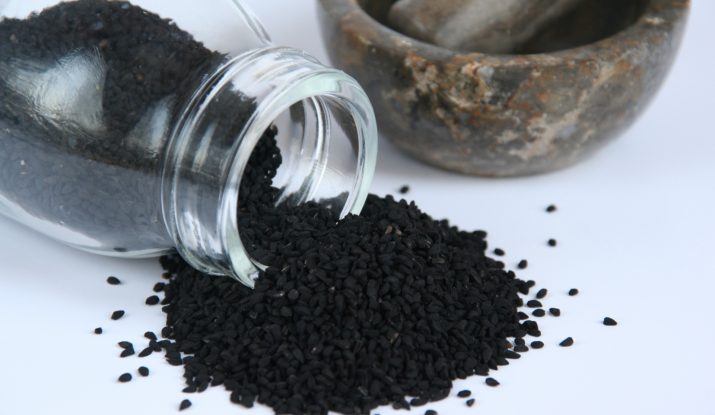Black cumin: Are There Health Benefits?
- Inflammation
- Asthma
- High Cholesterol
- Metabolic Syndrome
- Autoimmune Disorders
- Diabetes
Black seed oil can also be applied topically. Small scale studies have demonstrated positive effects for eczema, psoriasis, and acne.
That said, more research is needed to evaluate both the potential benefits and complications of using black seed and black seed oil.
Nutrition Information
One teaspoon of black seed oil contains:
- Calories: 45
- Protein: 0 grams
- Fat: 5 grams
- Carbohydrates: 0 grams
- Fiber: 0 grams
Black seed is a good source of:
- Calcium
- Iron
- Zinc
- opper
- Thiamin
- Niacin
- Phosphorous
- Folic cid
The medicinal benefits of black seed are mainly due to its main active compound called thymoquinone, which has shown antioxidant, anti-inflammatory, and other therapeutic properties that protect the body from cell damage and chronic diseases.
Potential Health Benefits of Black Seed & Black Seed Oil
Along with offering a wide range of essential vitamins and minerals, black seed has demonstrated many potential health benefits:
Anti-Inflammatory Effects
Black seed has proven to reduce inflammation and relax smooth muscles, easing the symptoms of people with asthma in clinical studies.
Combined with its antioxidant properties, these effects help prevent gastrointestinal disorders and relieve related symptoms.
Black seed may even help with neuroinflammation, or inflammation of brain tissue, which may contribute to the development of diseases like Alzheimer ’ s and Parkinson’s. So far, research has only been done on animals, so more studies are needed to confirm this potential benefit in humans.

